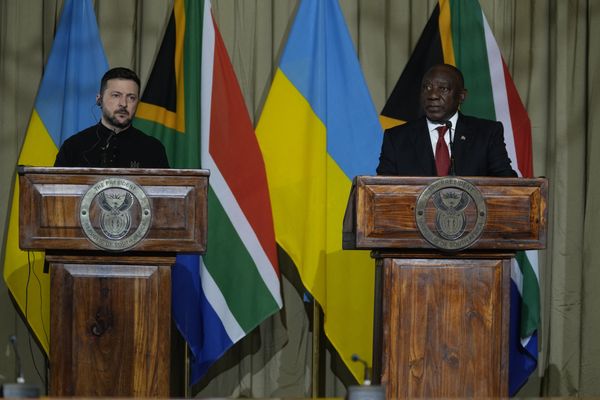Some refugee families have been living in Perth hotels for more than six weeks as they struggle to find a home in an extremely competitive rental market, support workers say.
The ABC understands about 40 families, mostly from Afghanistan, are living in hotel rooms in the city.
A shortage of housing, inflated rental prices, prejudice among landlords and a lack of rental history are among the disadvantages faced by refugees seeking a place to call home, according to support workers.
"There's an incredible amount of mental distress when people don't have safe, secure housing for themselves and for their families," Centre for Asylum Seekers, Refugees and Detainees acting general manager Esther Deng said.
"If you don't have stable and secure housing – one of the basic needs that all of us in the community seek and require for our day-to-day existence – it is really hard to feel that you can settle in."
She said the lack of housing created further challenges for refugees who wanted to enrol their children in school and find employment.
From multiple options to none at all
Liza Beinart, the state lead for migration at the Red Cross in WA, said there had been a "complete inversion" of the housing market, which used to be able to offer clients a choice of properties.
"Now … we're needing to look at 50 or 60 properties online, perhaps show clients five or six properties, apply for all of those, and then sometimes none of those are accepted," she said.
The Red Cross is contracted by the Department of Home Affairs to deliver a program that helps secure long-term accommodation and assists refugees as they establish a new life in Australia.
Ms Beinart said the housing squeeze intensified in August and September last year, coinciding with an influx of Afghan refugees arriving to escape the Taliban takeover.
With more than 5,000 Ukrainians now having been granted visas to travel to Australia to escape the Russian invasion of that country, Ms Beinart said housing remained the biggest challenge for the Red Cross in settling new arrivals.
"We are getting people housed — it is just taking longer than it would normally take in a normal market," she said.
She said some families had chosen to remain in hotel rooms to wait for a property that was suitable for them.
Prices predicted to rise
Earlier this year the Real Estate Institute of WA predicted rental prices would increase by another 10 to 15 per cent in 2022 and said there was not enough stock to meet demand, partly due to the border reopening to interstate and overseas migrants.
The rental vacancy rate in Perth was 1.1 per cent in February, compared with a "balanced market" of between 2.5 and 3.5 per cent.
The Department of Home Affairs said it covered initial rent and utilities payments and provided a basic household goods package to some refugee arrivals.
"In some circumstances, entrants may remain in short-term accommodation beyond their initial arrival period (generally 28 days) due to factors such as restricted rental markets within settlement locations," a spokesperson for the department said.
Ms Beinart said refugees who had been in hotels for six weeks or longer were paying at least partial rent for their rooms.







